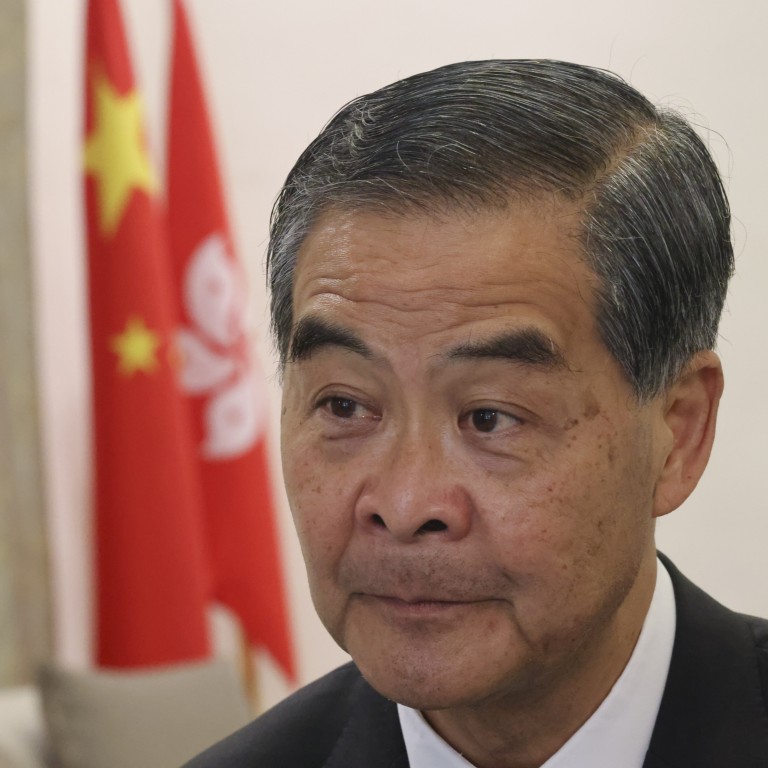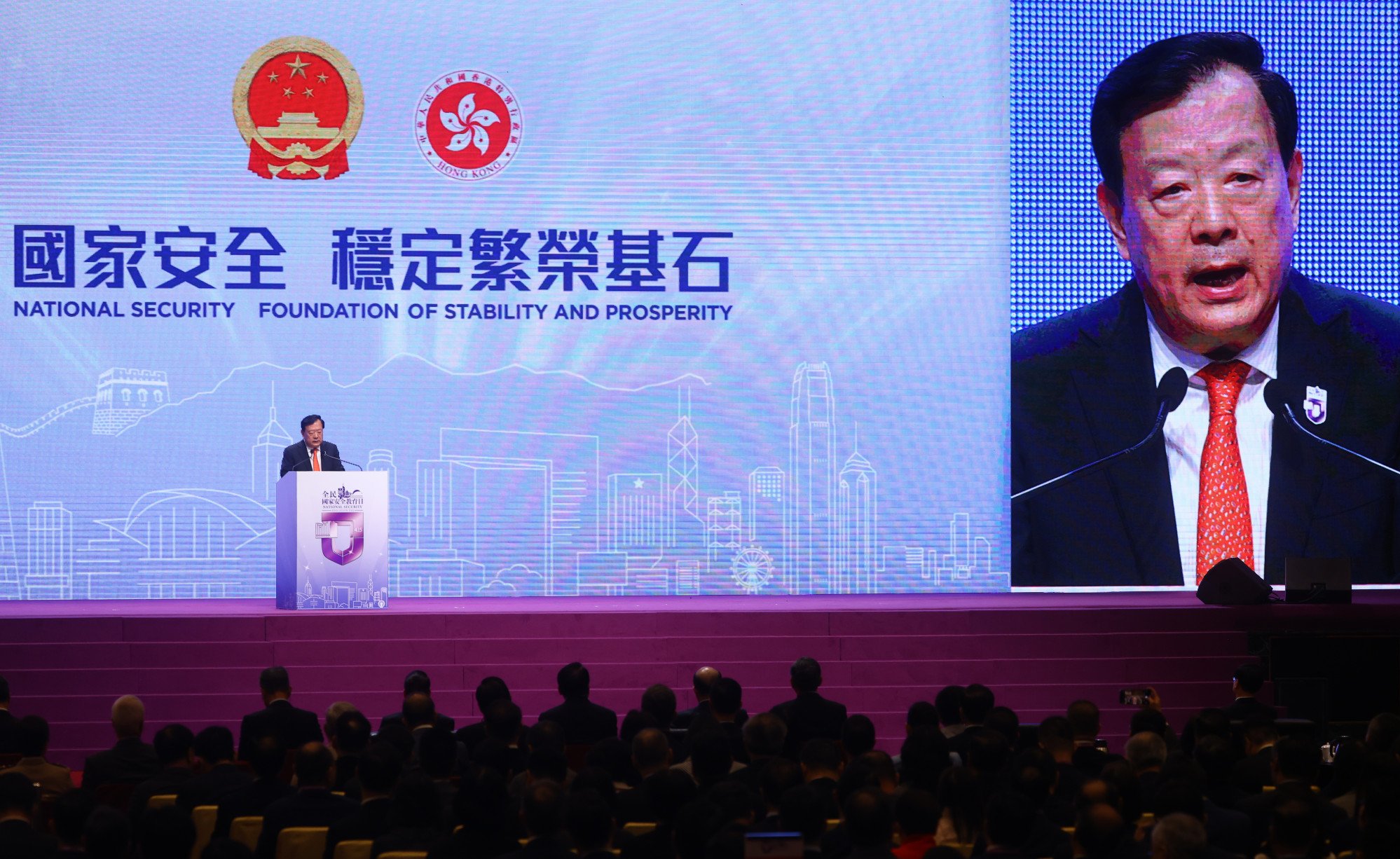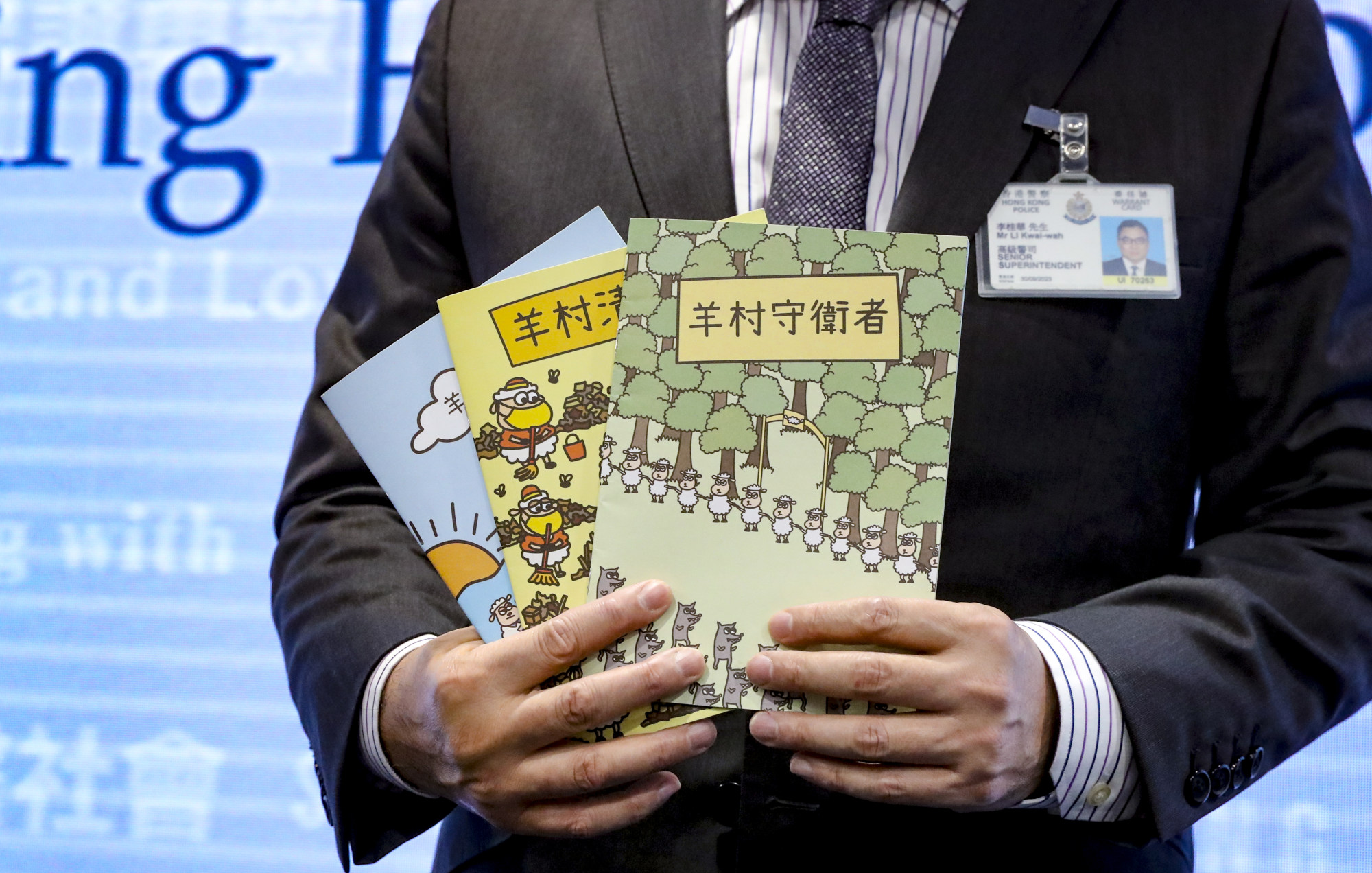
Former Hong Kong leader CY Leung accuses pro-Beijing lawmakers of lacking ‘fighting spirit’ to take on activists overseas
- Online activists spreading dangerous ideas to Hong Kong youth as lawmakers and politicians remain silent, ex-leader says
- Leung points to recent release overseas of audio version of book Hong Kong court deemed seditious content
“Even with the [national security] law, there remains the question of action,” Leung said. “Politically, we must expose words and deeds that endanger national security in a targeted manner. We need to have the fighting spirit and action.”
Xia Baolong, director of the State Council’s Hong Kong and Macau Affairs Office, said last week during his six-day visit that safeguarding national security and stability “requires struggle, effort and sacrifice”.

In the interview, Leung warned that many opposition activists who left the city had set up more than 100 concern groups in Taiwan, Britain and elsewhere to carry out their political goals using the internet.
“This will cause a bigger harm, as the audiobook can now be accessed by many Hong Kong young people on their phones,” he said.

But lawmakers and political parties in the city remained silent over the matter, as they were unwilling to provoke political disputes for fear of offending others, Leung argued.
“Here in Hong Kong, things might be relatively calm on the surface. But we must stay vigilant in the face of things that keep poisoning our young people and affecting their views on the country and national security,” he said.
28 meetings in 6 days: what was Beijing point man’s Hong Kong visit all about?
Xia last week also underscored that demonstrations could be hijacked by people with ulterior motives and residents could express their concerns in ways other than protesting.
Leung said while authorised demonstrations remained permitted in Hong Kong, some of the protests a “few years” ago had been “problematic” with “hidden ill motives” and they should be prevented from occurring again.
“We noticed political donations from unknown sources were broken up and put into donation boxes at the so-called street booths during the march. Then the protest turnout was certainly exaggerated in multiples to build momentum,” he said, adding the marches were not “ordinary”.
Hong Kong leader urges national security vigilance as top Beijing official ends trip

